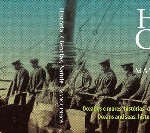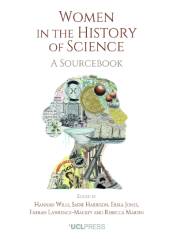October 2023
 The paper Beyond biomedical classifications: breast cancer experience in Brazil, 1990-2015 (HCSM Jul-Sep 2022) analyses illness experiences of breast cancer in women undergoing treatment at the Hospital of Cancer III of the National Institute of Cancer (INCA), in Rio de Janeiro.
The paper Beyond biomedical classifications: breast cancer experience in Brazil, 1990-2015 (HCSM Jul-Sep 2022) analyses illness experiences of breast cancer in women undergoing treatment at the Hospital of Cancer III of the National Institute of Cancer (INCA), in Rio de Janeiro.
Researchers Carlos Barradas (University of Coimbra), Luiz Teixeira and Luiz Alves Araújo Neto (Fiocruz) investigated how women undergoing treatment for breast cancer understand and give meaning to their illness experience.
Illness experience is a phenomenon at the same time individual and collective, lived within the family sphere and in other circles, confronting different aspects that configure the subjectivity and personal trajectory of the sick person.
Breast cancer is a disease that, besides the violence of its biological effects, brings with it a strong symbolic and emotional load, related to both the suffering that it produces and the possible transformations on the body and on sociability. Among several topics raised by the statements of the interviewed users, the researchers highlighted three categories of analysis: the reception of the diagnosis; the relationship with the family; and the impact of illness and treatment on identity and self-perceptions.
Barradas, Carlos, Teixeira, Luiz Antonio and Araújo, Luiz Alves. Beyond biomedical classifications: breast cancer experience in Brazil, 1990-2015. História, Ciências, Saúde-Manguinhos [online]. 2022, v. 29, n. 3 [Accessed 11 October 2022], pp. 625-643. Available from: <https://doi.org/10.1590/S0104-59702022000300003>
Activism against cancer in Peru The author briefly reviews the history of cancer in Peru by exploring the rise and decline of the anti-cancer league.
Control of cervical cancer in Brazil: the Belo Horizonte Hospital of Gynecology The hospital was a pioneer in introducing colposcopy in the state of Minas Gerais and establishing a structure specifically for care and diagnosis.
Historia de la salud pública, del cáncer y de las pandemias de influenza 25 años de HCS-Manguinhos – Testimonios. María Carrillo, Profesora titular del Departamento de Salud Pública de la Facultad de Medicina de la UNAM, ha participado con HCS-Manguinhos en tres proyectos colectivos.
El cáncer como problema sanitario en la Argentina El artículo analiza el proceso de creación del Instituto de Medicina Experimental, un centro destinado al estudio y el tratamiento del cáncer, inaugurado en el año 1922.
La Campaña Nacional Contra el Cáncer en México Ana María Carrillo (UNAM) estudia los primeros esfuerzos organizados en México para combatir al cáncer. HCSM vol. 17, jul. 2010.
Cancer in Ceará: from philanthropy to public health agenda It addresses the shaping of cancer as a relevant medical and social problem in the Brazilian state of Ceará from 1940 to 1954.
Cancer, women and public health Researcher Ilana Löwy follows the early history of the pap test, its consequences and controversies.
Cancer genetics in Cuba and Brazil This ethnographic study traces the perceptions of doctors and patients undergoing genetic tests.
Cervical cancer in Brazil Despite the dissemination of preventive measures, cervical cancer remains a serious problem in Brazil.







